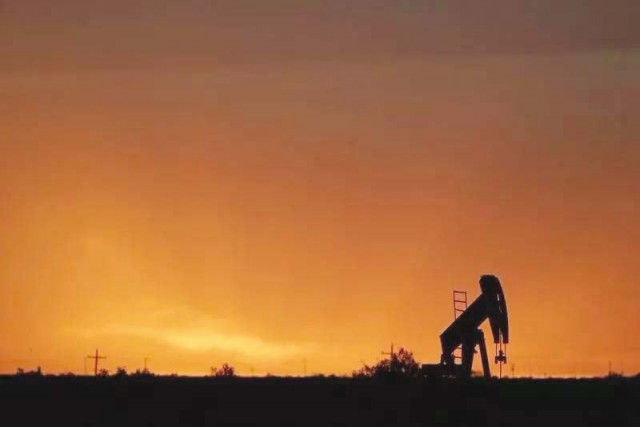Tackling seepage near oil, gas fields: After prolonged suffering, ministry designing policy
Local people have long been subject to environmental hazards caused by the seepage

Local people have long been subject to environmental hazards caused by the seepage. PHOTO: FILE
Now, the Ministry of Petroleum and Natural Resources has decided to send a summary to the Council of Common Interests (CCI) - an inter-provincial body - to seek approval of the policy being designed to address the problem of petroleum seepage.
The ministry was taking the step after a representative of the Khyber-Pakhtunkhwa government, in a meeting held on October 3, highlighted the seepage issue in certain areas of the province and requested the grant of rights to dispose it of in order to minimise environmental hazards.
During the meeting, the director general petroleum concessions (DGPC) noted that no provision existed for the handling and sale of petroleum seepage in the current regulatory regime and the petroleum policy and a draft policy was being framed in that regard.
The committee, formed to address different issues in the petroleum sector, agreed to adopt the policy for the disposal of petroleum seepage.
He said in case a provincial government issued a notification about petroleum seepage in an area, the DGPC would give three-month time to the existing exploration licence or lease holder to come up with a plan to safely handle and dispose of the seepage.
If the licence holder expressed no interest in cleaning the seepage, the federal government would allow the provincial government concerned to dispose of the natural petroleum seepage as it deemed appropriate.
Also, in the case of a notification about petroleum seepage by any provincial government in a free area, the federal government would allow the province concerned to dispose of the natural petroleum seepage as it deemed appropriate.
Meeting participants also decided that the DGPC would finalise the guidelines on handling the petroleum seepage in consultation with the relevant stakeholders.
K-P representatives pointed out that in the second meeting of the committee, it was agreed that salaries of the provincial directors sitting in the Directorate General of Petroleum Concessions would be paid out of funds generated through the sale of technical data.
The DGPC responded that though the proposal of K-P representatives was discussed in the meeting, but it did not give the approval.
Similarly, there was no agreement on the assertion of K-P representatives for bringing the provincial directors under MP-1 pay scale, with the argument that it was a very senior-level position generally offered to the heads of institutions and regulatory bodies.
The committee decided that salaries of the provincial directors would be paid out of the DGPC training fund. The salary would be Rs250,000 per month.
Arrears of the nominated provincial director of K-P would be paid at the rate of his last salary drawn at the time of retirement in March 2015 after execution of a formal employment and service contract with the DGPC.
The existing interim arrangement would continue till the creation of a separate fund and additional posts in the DGPC or creation of an independent upstream regulator or end-June 2017. This arrangement will be put before the CCI for ratification.
Published in The Express Tribune, November 23rd, 2016.
Like Business on Facebook, follow @TribuneBiz on Twitter to stay informed and join in the conversation.



















COMMENTS
Comments are moderated and generally will be posted if they are on-topic and not abusive.
For more information, please see our Comments FAQ